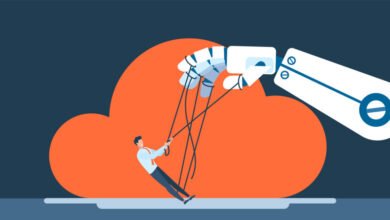Sam Altman and Quantum Computing Pioneer Propose Turing Test 2.0

▼ Summary
– Sam Altman and David Deutsch proposed a new benchmark for human-level AI intelligence: if an AI could solve and explain quantum gravity.
– The conversation occurred during a Berlin event where Altman was surprised by a live video call with Deutsch, whose book he admires.
– Deutsch, a physicist and philosopher, conceded that ChatGPT proved him wrong by holding conversations without being AGI, but he distinguishes chat ability from true intelligence.
– He defined genuine intelligence as the ability to create new knowledge, like Einstein developing the theory of relativity, not just assembling existing ideas.
– Altman and Deutsch agreed that an AI capable of creating and explaining a discovery like quantum gravity would meet the standard for artificial general intelligence.
A new benchmark for artificial general intelligence emerged from an unexpected conversation in Berlin, proposing that the true test of a machine’s intellect lies not in conversation but in profound scientific creation. OpenAI CEO Sam Altman and quantum computing pioneer David Deutsch found common ground on a modern Turing Test: an AI must formulate a theory of quantum gravity and, crucially, explain the reasoning behind its discovery.
The moment occurred during a fireside chat at the headquarters of Axel Springer, where Altman was receiving an award. Publisher Mathias Döpfner, after learning that Deutsch’s book “The Beginning of Infinity” was a favorite of Altman’s, orchestrated a live video link with the author from Oxford. The encounter brought together two distinct philosophies on the path to AGI. Altman, who champions scaling existing models, engaged with Deutsch, a foundational thinker who questions whether brute-force data training can ever yield genuine understanding.
Their exchange was marked by mutual respect rather than debate. Deutsch conceded that his previous belief, that no computer could hold an open-ended conversation without being a true AGI, had been proven wrong by ChatGPT. He acknowledged the model’s conversational prowess but drew a sharp distinction between that ability and authentic intelligence. For Deutsch, true intelligence is defined by the capacity to create new knowledge, to identify a problem, devise a novel solution, and refine it through a process of critical improvement, much like a human scientist.
He illustrated his point with the story of Einstein developing the theory of relativity. The significance lies not in the final equations but in the creative journey, understanding the problems Einstein sought to solve and the intuitive leaps he made. Deutsch even applied this concept to Altman himself, praising the intuition and foresight required to launch ChatGPT as a global phenomenon, an act that no current programming can replicate.
It was then that Altman posed a defining hypothetical. He asked Deutsch if an AI that successfully developed a complete theory of quantum gravity and could articulate the narrative of its discovery, the questions it asked and the rationale for its approach, would constitute convincing evidence of human-level intelligence. Without hesitation, Deutsch agreed. A smile spread across Altman’s face as he accepted this new standard, stating, “I agree to that as the test.” This proposed “Turing Test 2.0” shifts the goalposts from imitation to genuine, explainable innovation.
(Source: Business Insider)





